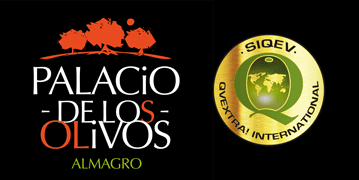[vc_row][vc_column][alus_section_title title=”Recepción de la aceituna” style=”bordered-v2″ title_tag=”h1″ font_size_title=”40″ font_weight_title=”400″][/vc_column][/vc_row][vc_row][vc_column width=”1/2″][vc_column_text]Once the olives are harvested, they are carefully and fast transported to the mill, in small quantities, in order to maintain all their freshness and to avoid its natural, and fast, fermentation process producing its oxidation and temperature rise. This may occur if the olives are stacked in the trailers and/or if the weather is of high temperature. Because of this process, the olives can lose aromas, flavor and/or nutritional properties, and would give rise to bad odors, which could be trespassed to the oil. Therefore, the time elapsed between the olive harvest and the extraction of the oil in the mill is a key factor for the production of high-quality EVOO and in our mill the whole collection and extraction process of each small lot takes less than one hour, meaning guaranteed premium quality.
The olives have their own temperature while they are hanging from the tree, and it may be increased a few degrees due to the process of detachment from the tree (harvest), the number of hours being detached, stacked, and/or if they have been kept under the heat of the sun. So, to produce high-quality EVOO it´s very important to collect the olives quite fast, not piling them up for long and start the milling process as soon as possible. This way we also avoid the proliferation of any possible bacteria, since they develop more, and more easily under higher temperatures.
The olives collected are deposited in the reception patio.
The quality of the olives is controlled, again, once they get to the mill, at the cabin of control, where specialized technical personnel check their quality, homogeneous maturation and healthiness.
Our patio is covered, to control its temperature by avoiding the heat of the direct sun and the sunlight. There we unload the olives in a hopper from which are trespassed to another hopper by food conveyor belts (regulated white rubber) where a mechanical blowing system separate the branches and leaves. The clean olives continue their way over another conveyor belts to the scale, where they are weighed, and each entry lot is recorded to control traceability at such a speed that avoids stacking. And the branches and leaves are deposited in separate hoppers, to be reused as a compost. And finally, from the scale, the olives continue their way through the belts to the mill.
The time that elapses from the harvest until the olives get into the mill does not exceed half an hour.
We prefer not to wash the olives with water. They come directly from the olive trees, in very careful supports (in perfect hygienic and state conservation) so we do not see necessary to add water to the process, as it may alter the EVOO sensory result.
Our annual/per season olive processing (milling) capacity is up to 3,500 kg/h – 1.000.000 kg.[/vc_column_text][/vc_column][vc_column width=”1/2″][vc_single_image source=”external_link” custom_src=”https://olivapalacios.es//wp-content/uploads/2019/06/olives-2849372_1920-1.jpg”][vc_single_image source=”external_link” custom_src=”https://olivapalacios.es//wp-content/uploads/2019/09/almazara-011.jpg”][/vc_column][/vc_row][vc_row][vc_column][vc_message message_box_style=”3d” message_box_color=”orange” icon_fontawesome=”fa fa-share”]Grinding and beating[/vc_message][/vc_column][/vc_row]


